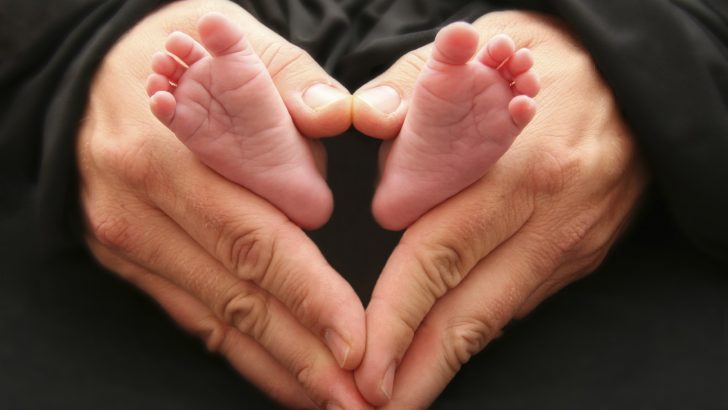The Government has announced this evening that it has established a so-called ‘expert group’ to look at the issue of abortion.
In December 2010 the European Court of Human Rights (ECHR) ruled that Ireland must clarify the circumstances under which abortion would be legal in the State. However, crucially the case does not mean that Ireland must legislate for abortion as some commentators have wrongly suggested.
A statement from the Department of Health this evening (Friday) noted that the group “has been established to examine the A, B and C v Ireland judgment and to report back to Government within six months with options on how to implement the judgment of the European Court”.
The Expert Group will be chaired by Justice Mr Seán Ryan and consist of the following 13 members:
Dr Peter Boylan, Consultant Obstetrician and Gynaecologist
Dr Mary Holohan, Consultant Obstetrician and Gynaecologist
Dr Imelda Ryan, Psychiatrist,
Dr Ailish Ni Riain, General Practitioner
Dr Mark Walsh, General Practitioner
Ms Christine O’Rourke, Office of the Attorney General
Ms Mary O’Toole, Senior Counsel
Ms Joanelle O’Cleirigh, Solicitor
Ms Denise Kirwin, Solicitor
Dr. Deirdre Madden, Medical Council
Dr Maura Pidgeon, An Bord Altranais
Dr Tony Holohan, Chief Medical Officer, Department of Health
Mr Bernard Carey, Assistant Secretary, Department of Health
In a binding case in December 2010 the court ruled that Ireland had breached the human rights of a woman with a rare form of cancer who feared it would relapse when she became unintentionally pregnant.
However, the woman was unable to find a doctor willing to make a determination as to whether her life would be at risk if she continued her pregnancy to term.
The court concluded that neither the “medical consultation nor litigation options” relied on by the Government constituted an effective or accessible procedure.
“Moreover, there was no explanation why the existing constitution right had not been implemented to date,” the court ruled.
While abortion remains a criminal offense under 1861 legislation, a technical constitutional right to abortion does exist in Ireland following a 1992 Supreme Court ruling. In a controversial judgment known as the “X case,” the court established the right of Irish women to an abortion if a pregnant woman’s life was at risk as a result of the pregnancy.
However, successive governments have not legislated on the issue, and several constitutional referenda variously aimed at either enacting or revoking the judgment have proved inconclusive.
The European court case was filed in 2005; in 2009 it had an oral hearing before the court’s grand chamber. This 17-judge court is reserved to hear cases that raise serious questions affecting the interpretation of the European Convention of Human Rights. As a signatory to the European Convention on Human Rights – now incorporated into Irish law – the Government is obliged to remedy any breaches of the convention.
Ireland and Malta are the only member-states of the Council of Europe in which abortion remains illegal.
Two other Irish women who took cases before the court in Strasbourg, France, were unsuccessful in their bids. The first woman, who was claiming the right to an abortion because she was living in poverty and felt unable to raise the child, had her case struck down. Her case, if successful, would have forced Ireland to legislate for abortion-on-demand. The second of the two unsuccessful candidates ran the risk of an ectopic pregnancy, in which the foetus develops outside of the womb. Her case also was rejected because there was no clear medical certainty over the diagnosis of an ectopic pregnancy.
All three women were among an estimated 4,000 Irish women who travel to neighboring Britain for an abortion each year.
During the 2010 case the State defended its laws and said Ireland’s abortion laws were based on “profound moral values deeply embedded in Irish society.”
It argued that the European Court of Human Rights has consistently recognised the traditions of different countries regarding the rights of unborn children. However, it maintained that the women’s challenge sought to undermine these principles and align Ireland with countries with more liberal abortion laws.
In the aftermath of the 2010 ruling Independent Senator Rnan Mullen called on the government to hold a referendum to overturn the 1992 Supreme Court decision.
“The only reason the ECHR made this judgment is because the Supreme Court made its flawed interpretation of the (Irish) constitution. We now need to have a referendum that will restore the full legal and constitutional protection for the unborn that was undermined by the Supreme Court,” Mr Mullen said.
William Binchy, a constitutional lawyer and legal adviser to the Pro-Life Campaign said “the most important (thing) is that the judgment does not require Ireland to introduce legislation authorising abortion. On the contrary, it fully respects the entitlement of the Irish people to determine legal policy on protecting the lives of unborn children.
“The Irish people must now make a choice. If they were to choose to endorse the Supreme Court decision in X, this would involve legalizing abortion contrary to existing medical practice and the best evidence of medical research. If, on the other hand, the Irish people choose to endorse the current medical practice, they will be ensuring the continuation of Ireland’s world-renowned safety record for mothers and babies during pregnancy,” Prof. Binchy said.
The issue has emerged over the years as a lightning rod in Irish politics, with most politicians unwilling to touch the issue.


